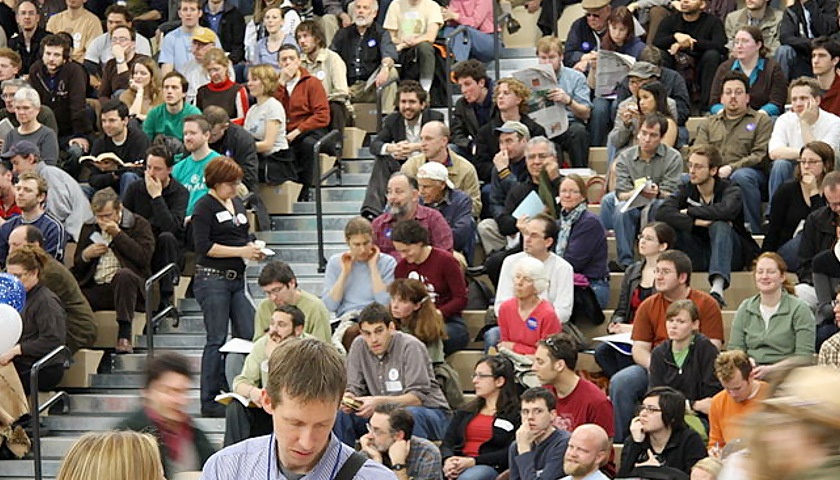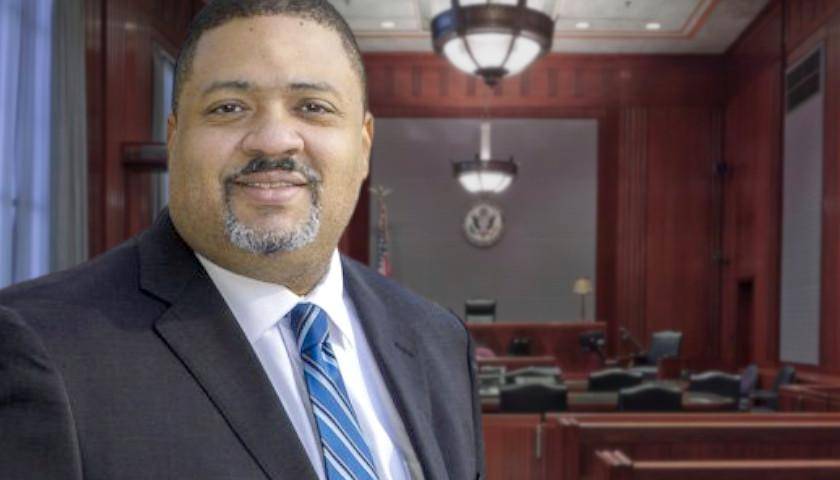by Jim Larew
There is a time-tested method to gain disproportionate national press attention by a presidential candidate whose Iowa caucus campaign is on the ropes. To create an impression of uncommon political bravery, that candidate need only make a series of frontal assaults while in Iowa on the Iowa caucuses themselves.
The media, ever mindful of its residual obligation to give attention to “all sides” of every debated issue, feels duty-bound to balance all of the nice things that most of the vote-seeking presidential candidates say about Iowa and its voters while they comb through the state’s 99 counties looking for support.
The media achieves its illusion-of-balance by focusing attention on lone dissenting voices of candidates who spend their limited resources attacking the caucus system, itself, rather than campaigning in more traditional fashions.
Not since 1988, perhaps, when Al Gore, finding his own fledgling campaign to be sinking in the dust of Iowa’s hustings, secured headlines by attacking the caucus system, has any Democratic candidate for president gained such attention by launching an Iowa-Caucus-Attack as has Julian Castro, most recently.
Had Castro gotten as much press attention earlier-on, while promoting his candidacy for president on its own merits, the outcome of his campaign efforts might have been different, and better.
Whatever else may ail the Democratic Party’s nomination system, it would be odd if the Iowa caucus system – the same system, populated largely by the same people, who, in very recent years, elevated the candidacies of persons irrespective of race (Barack Obama) or gender (Hillary Clinton) – were to be disproportionately blamed for the system’s short-comings.
A presidential nomination system, for example, that, as in this cycle, invites no less than 24 candidacies into its process is bound to be confronted by unexpected, adverse consequences – notwithstanding Iowa’s population composition, its caucus rules or the caucus placement position on the nomination calendar.
Not the least of these adverse consequences of such large candidate fields are the very real possibilities that serious issue discussions will be precluded and that a candidate’s celebrity status, above all else, will determine the nomination process outcomes more than will political experience or issue positions – no matter where (Iowa or otherwise) that process begins or ends.
If we remain a party that equates sound democratic (small “d”) nomination processes with 24 candidates-on-a-stage, we cannot claim to be surprised when – as did Donald J Trump three years ago after debating large stages of Republican Party candidates – a celebrity ambushes the party entirely.
What if, after all, Oprah Winfrey had decided to run for president this time around? Think things would be looking differently for the other candidates competing in the Iowa caucuses right about now?
No doubt Michael Bloomberg is onto something when he skips altogether the Iowa caucuses and the early, smaller states in the nomination process, in anticipation of meeting a large field of candidates down-the-road, in states where large media budgets creating and promoting celebrities make all the difference.
Not often discussed in the criticisms and defenses of the Iowa caucus system are the original animating principles that were no less important back in 1972, when Iowa’s populist giant, Harold E Hughes, proposed fundamental nomination process reforms, that included caucus options, than they are today.
First, while Iowa need not necessarily always be first in the nomination process, it is also the case that Iowa provides a remarkably level playing field for any such process to begin. With 3 million people dispersed amongst 99 counties and approximately 950 cities, there are no political machines here.
Coalitions created by activists to elect one person to one office one campaign year dissipate immediately after the election, to be re-created in some new way, by a different mix of persons and groups, to elect the next person to another office the very next election. Anyone seeking the Democratic party’s presidential nomination in any election cycle in Iowa must start from scratch.
Such a situation does not characterize many states. Iowa’s uniqueness in this respect is a strength, not a weakness. Getting Iowa off the earliest stages of the nomination process will not likely improve the outcome at the end of the line.
Second, Iowa’s relatively small population, spread out over as many as seven media markets makes investments in media-driven campaigns problematic, if not economically-challenged. A campaign with limited resources, invested in skillful boots-on-the ground workers and volunteers, can do as well–or better–than well-heeled media-centered approaches, assuring that, in most years, most candidates will test-drive their messages in front of in-person live gatherings before they are catapulted into the more populated media-saturated larger states, places where large-budgeted celebrity candidates have built-in advantages, after the Iowa caucus experience concludes.
Third, a major – perhaps the most important, and deeply undervalued by the Gore-Castro critiques – virtue of the Iowa caucuses is that such meetings convened for a two hour period in more than 1600 locations across the state allow opportunities for real people to get together in real places with real neighbors for boisterous good times (a few hours of more authentic excitement than even Netflix movies can deliver its subscribers): no ringers, no known fraud, and, in the end, results that produce, sometimes brutally, very credible evidence to the rest of the nation as to which of the fledgling candidacies should likely not go forward.
Some of the caucus reform proposals – whether wittingly or not – would appear to be fashioned to turn the Iowa Democratic Party’s caucuses into some other version, although more deeply flawed, of the old-school Iowa Republican Straw Poll.
Other proposals – the electronic satellite caucuses come to mind – would appear, at best, to deny the accountability that face-to-face in-person caucuses assure or, at worst, to invite the infiltration of non-resident operatives. To what end? At what, if any, gain?
The Iowa caucuses – one important part of Hughes’s post 1968-convention reforms designed to break the unit rule method of nominating presidential candidates, to reduce the dominating influence of power-brokers and to democratize the nomination processes, generally – were never intended to create a perfect system.
Rather, as a small, yet important, early step of the nomination process, it is hard to imagine a substantially improved system under which the Iowa Caucuses were to be significantly altered or eliminated, as has been most recently proposed by a disappointed Julian Castro on his way out the door.
– – –
Jim Larew is a practicing attorney in Iowa, Democratic Party expert, and regular guest on The Tennessee Star Report with Michael Patrick Leahy. An earlier version of this commentary was published over the weekend at Bleeding Heartland. This revised version published with permission of author.
Photo “Iowa Caucus” by Cumulus Clouds CC2.0.




